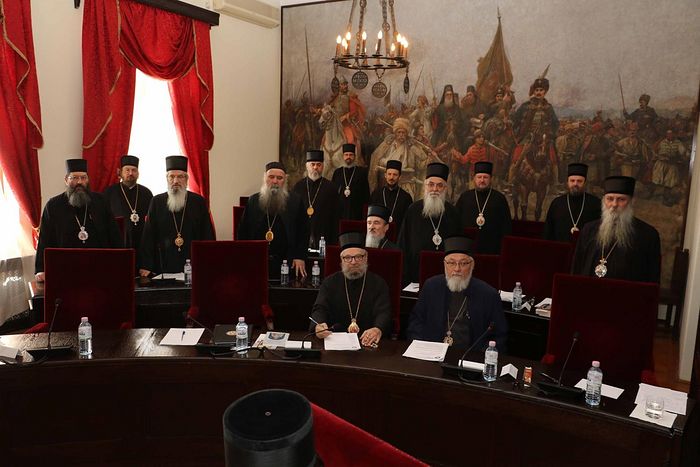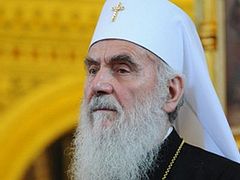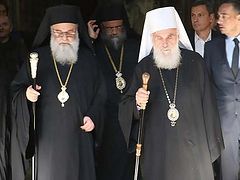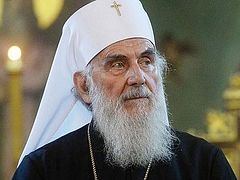Belgrade, November 12, 2018
The Serbian Orthodox Church has published its position on the Church crisis in Ukraine following the latest decisions of the Patriarchate of Constantinople on October 11.
The bishops of the Serbian Church met in Belgrade on November 6-7, addressing several pressing issues in the life of the Serbian Church and the Orthodox Church as a whole, including the ongoing crisis situation and persecution in Kosovo and Metohija, and the improvement of education in the Serbian Church.
The Communique of the Holy Assembly of Bishops of the Serbian Orthodox Church on Kosovo and Metohija can be found on the Serbian Church’s official site.
Regarding the situation in Ukraine, the Council of Bishops first “notes with regret that the Patriarchate of Constantinople made a canonically unfounded decision to rehabilitate as bishops and recognize the two leaders of the schismatic groups in Ukraine, Philaret Denisenko and Makary Maletich, together with their episcopate and clergy.”
The Serbian hierarchs note that the former was canonically defrocked and anathematized and the latter is deprived of all apostolic succession, being the head of a branch of the so-called “self-sanctifiers,” whose episcopacy was created, rather than received, in Canada in the 1920s.
Denisenko was defrocked by the Moscow Patriarchate in 1992 and anathematized in 1997. At those times, the Ecumenical Patriarchate recognized the Moscow Patriarchate’s “exclusive competence” to deal with these matters and accepted its decisions.
Thus, “the holy Bishops’ Council resolved that the decision of the Synod of Constantinople is non-binding for the Serbian Orthodox Church.”
“The Assembly does not recognize the mentioned figures and their followers as Orthodox bishops and clergy and, consequently, does not accept liturgical and canonical communion with them and their supporters,” the statement continues.
Finally, the Serbian Council proposes to the Patriarchate of Constantinople and all the other autocephalous Churches that the issue of autocephaly and the Orthodox diaspora should be taken up as soon as possible at a pan-Orthodox Council, “in order to confirm and strengthen the catholicity and unity of the Orthodox Church and to in the future avoid the temptation that holy Orthodoxy is going through now.”
A joint statement between His Beatitude Patriarch John X of Antioch and His Holiness Patriarch Irinej of Serbia signed in late October also called for a pan-Orthodox Council to deal with the Ukraine issue on a conciliar, rather than unilateral, basis.
Follow us on Facebook!




